Spirea Bumalda: The Easycare Shrub That Will Bloom All Summer
Title: Spirea Bumalda: The Easy-Care Shrub That Will Bloom All Summer
Introduction:
Spirea Bumalda is a beautiful and easy-care shrub that is perfect for adding color and interest to your garden. It blooms for months on end, from late spring to early fall, and comes in a variety of colors, including pink, white, and red. Spirea Bumalda is also relatively drought-tolerant and can withstand a variety of climates.
In this blog post, we will discuss the different varieties of Spirea Bumalda, how to plant and care for it, and some of the benefits of adding this shrub to your garden.
Main Content:
Varieties of Spirea Bumalda
There are many different varieties of Spirea Bumalda available, each with its own unique characteristics. Some of the most popular varieties include:
- Goldflame Spirea: This variety has bright yellow leaves that turn orange in the fall. It blooms in late spring with clusters of pink flowers.

- Little Princess Spirea: This dwarf variety grows only 2-3 feet tall. It blooms in early summer with clusters of white flowers.
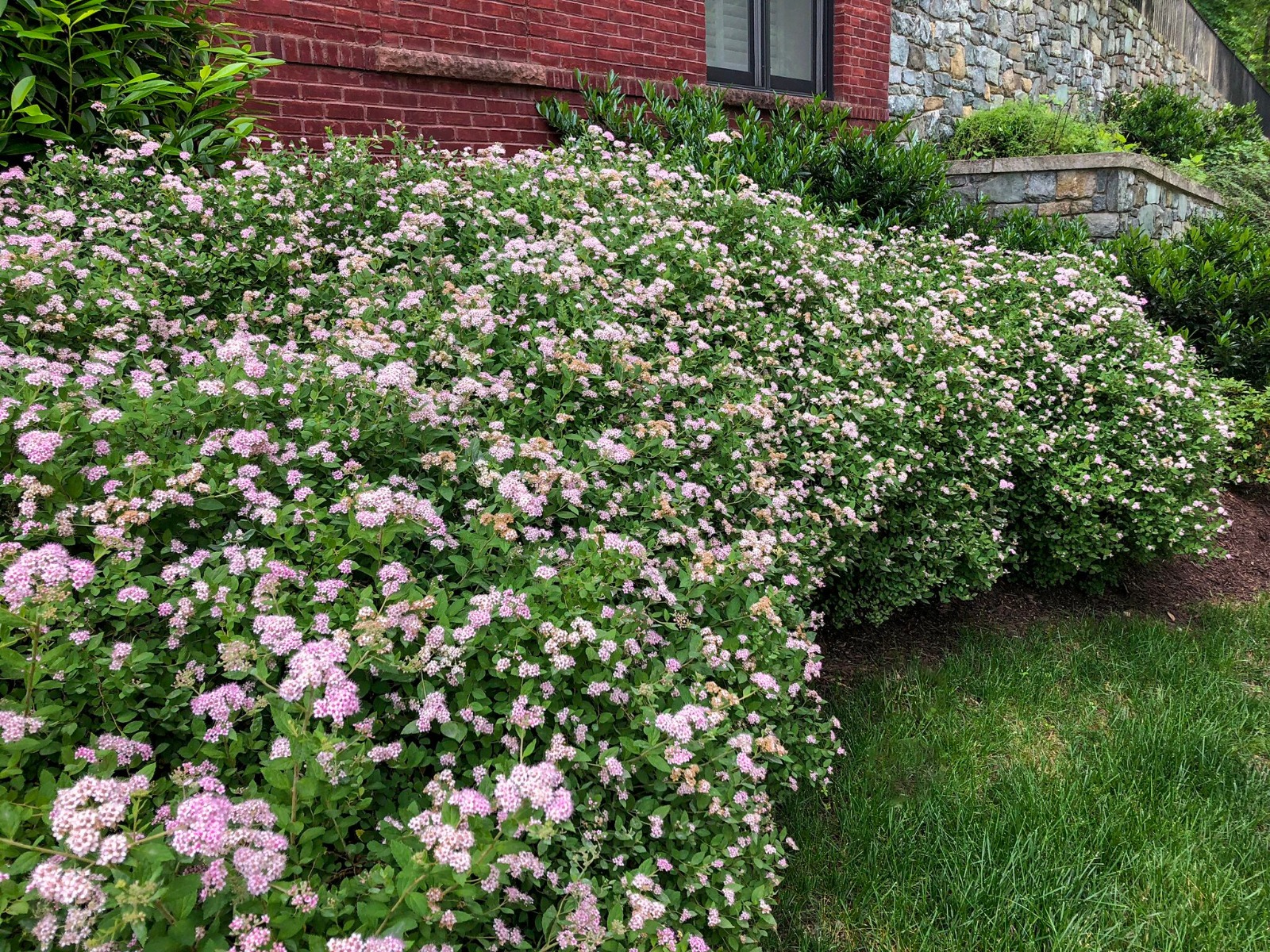
- Anthony Waterer Spirea: This variety has large, pink flowers that bloom in late spring. It can grow up to 6 feet tall.
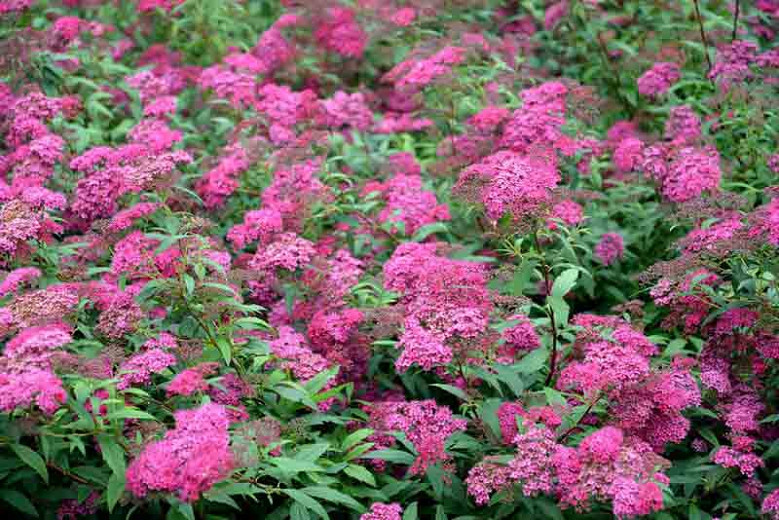
- Double Play Doozie Spirea: This variety blooms for an exceptionally long time, from late spring to early fall. It has red-pink flowers.
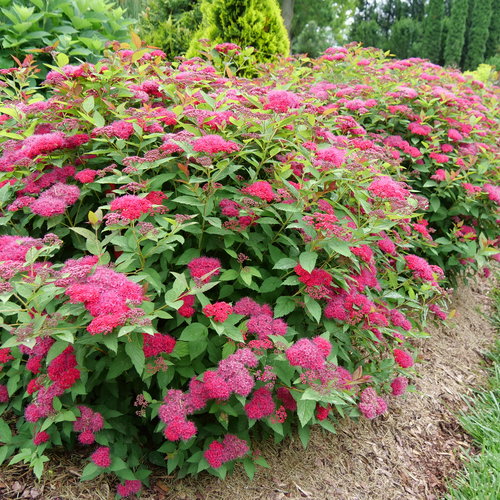
How to Plant and Care for Spirea Bumalda
Spirea Bumalda is a relatively easy shrub to plant and care for. It prefers full sun or partial shade and well-drained soil. It is drought-tolerant once established, but it will benefit from regular watering during the first year.
To plant Spirea Bumalda, dig a hole that is twice as wide as the root ball. Backfill the hole with soil and water well. Mulch around the plant to help retain moisture.
Spirea Bumalda does not require a lot of fertilizer. A light application of fertilizer in the spring will help promote flowering.
Benefits of Adding Spirea Bumalda to Your Garden
There are many benefits to adding Spirea Bumalda to your garden. Here are a few:
- Beautiful flowers: Spirea Bumalda blooms for months on end, providing your garden with a burst of color.
- Easy care: Spirea Bumalda is a relatively easy shrub to plant and care for.
- Drought tolerant: Spirea Bumalda is drought-tolerant once established, making it a good choice for areas with hot, dry summers.
- Variety of colors: There are many different varieties of Spirea Bumalda available, each with its own unique color.
Conclusion:
Spirea Bumalda is a beautiful and easy-care shrub that is perfect for adding color and interest to your garden. It blooms for months on end, from late spring to early fall, and comes in a variety of colors. Spirea Bumalda is also relatively drought-tolerant and can withstand a variety of climates.
If you are looking for a low-maintenance shrub that will add beauty to your garden, Spirea Bumalda is a great option.
If you are interested in learning more about spirea bumalda, I recommend visiting Home Gardening. This website provides a wealth of information about this popular shrub, including its history, care requirements, and varieties.
You can also find photos and videos of spirea bumalda on the website, which can help you visualize this plant in your own garden.
FAQ of spirea bumalda
- What is Spirea bumalda?
- Spirea bumalda is a deciduous shrub that is native to Asia. It is known for its showy clusters of pink, white, or red flowers that bloom in summer. Spirea bumalda is a popular choice for landscaping because it is easy to care for and is tolerant of a variety of conditions.
- How much sun does Spirea bumalda need?
- Spirea bumalda performs best in full sun, but it can tolerate light shade.
- How much water does Spirea bumalda need?
- Spirea bumalda needs regular watering, especially during the first year after planting. Once established, it is more drought tolerant.
- How much space does Spirea bumalda need?
- Spirea bumalda can spread up to 3 feet wide, so it is important to space plants accordingly.
- How do I care for Spirea bumalda?
- Spirea bumalda is a relatively low-maintenance shrub. It should be pruned in late winter or early spring to remove old growth and encourage new blooms.
- What are some common pests and diseases of Spirea bumalda?
- Spirea bumalda is susceptible to a few pests and diseases, including aphids, spider mites, and powdery mildew. These problems can be treated with insecticidal soap or neem oil.
- How long does Spirea bumalda live?
- Spirea bumalda can live for 10-20 years.
Image of spirea bumalda
- Image 1: A close-up of a spirea bumalda flower, showing the delicate pink petals.
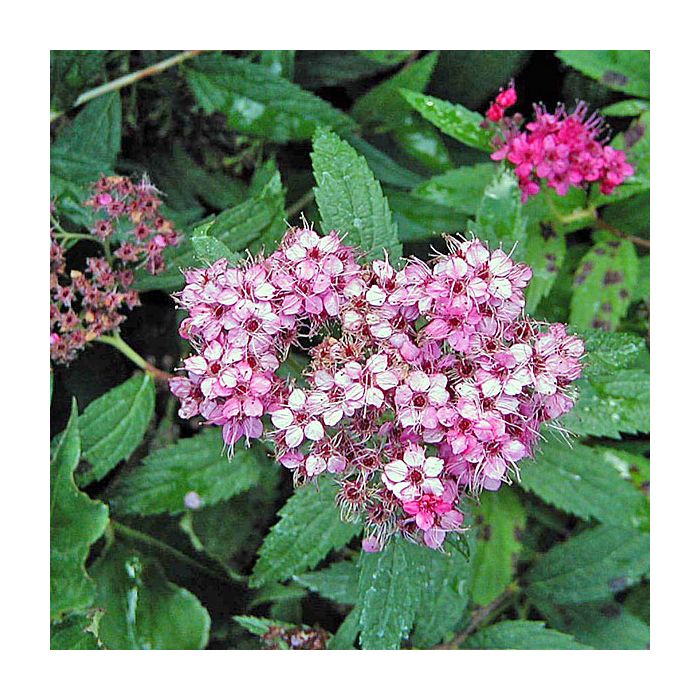
- Image 2: A full shot of a spirea bumalda shrub, showing the cascading pink flowers.
- Image 3: A spirea bumalda shrub in full bloom, surrounded by green foliage.
- Image 4: A group of spirea bumalda shrubs planted in a garden, providing a splash of color.
- Image 5: A spirea bumalda shrub in fall, showing the colorful foliage.
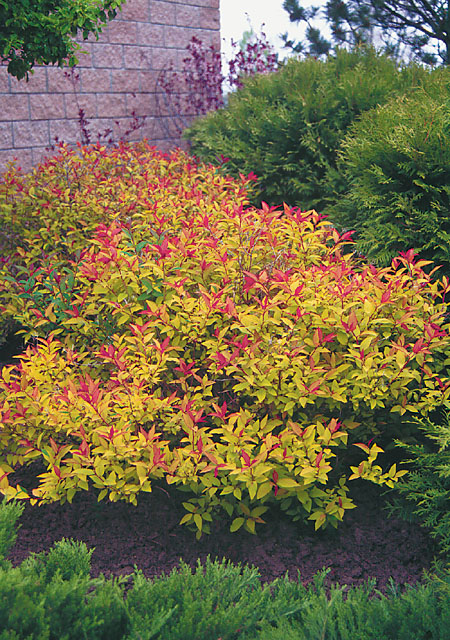
- Image 6: A spirea bumalda shrub in winter, showing the bare branches.
- Image 7: A spirea bumalda shrub planted in a pot, making a great patio plant.

- Image 8: A spirea bumalda shrub used as a hedge, providing privacy and screening.

- Image 9: A spirea bumalda shrub planted in a wildflower meadow, adding a touch of elegance.

- Image 10: A spirea bumalda shrub planted next to a walkway, providing a colorful accent.
Post a Comment for "Spirea Bumalda: The Easycare Shrub That Will Bloom All Summer"